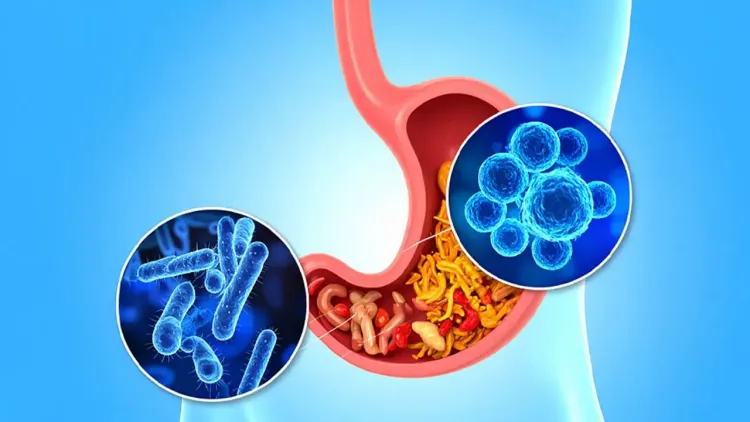Can a Healthier Gut Enhance Mental Health Conditions Like Depression and Anxiety?

Synopsis
Key Takeaways
- Gut microbiome plays a critical role in mental health.
- Strong evidence links changes in gut bacteria to brain chemistry.
- Probiotics and dietary changes may improve mood and anxiety.
- Research highlights the need for new treatment options for mental health disorders.
- Understanding this connection could transform mental health care.
New Delhi, Oct 11 (NationPress) The gut microbiome may be crucial in addressing depression, anxiety, and other mental health conditions—significant global health issues that affect nearly one in seven individuals worldwide, according to a recent study. Researchers at the University of South Australia investigated the intricate links between the gut and the brain to understand their impact on mental health and overall wellbeing.
The research highlights the emerging evidence that the gut and brain are profoundly interconnected. Their findings, published in the journal Nature Mental Health, provide compelling evidence that alterations in an individual's gut microbiome can directly influence their brain chemistry.
“The gut–brain relationship is one of the most promising areas in mental health research,” stated lead author Srinivas Kamath, a doctoral candidate at the university.
“We are aware that the trillions of microbes residing in our digestive tract communicate with the brain via chemical and neural pathways, impacting our mood, stress levels, and cognitive functions.
“However, a pressing question remains: do alterations in gut bacteria genuinely trigger mental disorders, or do they merely reflect changes occurring elsewhere in the body?” Kamath added.
The research team's comprehensive review of studies presented strong evidence that gut microbes can modify brain chemistry, stress reactions, and behaviors in animal models, as well as disrupted gut patterns associated with conditions such as depression and schizophrenia.
Furthermore, they observed that initial trials involving probiotics, dietary modifications, and fecal microbiota transplants have shown promise in enhancing mood and alleviating anxiety. Psychiatric medications can also alter the microbiome, further illustrating the gut-brain connection.
Globally, mental health disorders impact nearly 970 million individuals, with depression and anxiety being leading causes of disability. Alarmingly, up to one-third of patients do not respond to existing treatments, underscoring the urgent need for innovative and accessible solutions.
“Demonstrating that gut bacteria have a direct role in mental illness could revolutionize our approach to diagnosing, treating, and even preventing these conditions,” commented co-researcher Dr. Paul Joyce.
“Microbiome-based therapies, including probiotics, prebiotics, or customized diets, could provide safe, affordable, and culturally relevant alternatives to complement current treatment options,” Joyce added.
The researchers urged for future investigations to monitor gut changes over time and involve more diverse and larger populations, aiming to deepen our understanding of how diet, environment, and culture influence the gut-brain connection.









